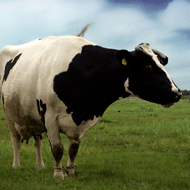
European veterinary organisation warns that pasteurisation is essential to protect consumer health
The Federation of Veterinarians of Europe (FVE) have expressed concern over a growing trend towards the consumption of raw milk from cows, goats and sheep.
FVE say that in many nations across Europe there is a tendency to believe that foods that have not been processed are better for health, however often the opposite is true and this is particularly the case with raw, unpasteurised milk and milk-based dairy products.
Food is processed to eliminate micro-organisms that can make people sick but farms offer raw milk from cows, goats or other animals without a clear communication about the risks associated with it.
Raw milk and milk-based products may contain pathogens that can make people seriously ill, such as Staphylococcus aureus, Campylobacter jejuni, Salmonella species, E. coli and Listeria monocytogenes. These bacteria may cause vomiting, diarrhoea, abdominal pain, fever, headache and body ache while some people, especially vulnerable groups such as children and older people, can develop acute life-threatening illness.
Pasteurisation is a scientific and evidence-based process which heats milk to a high temperature applied for a short period of time. The temperatures and times are set up to destroy these bacteria and other microorganisms that may cause sickness. Pasteurisation does not significantly change the taste or the nutritional value of milk and dairy products and it gives them a longer shelf life.
In recent months, several European countries have reported outbreaks of diseases which were directly related to the drinking of unpasteurised raw milk.
The FVE, an umbrella of 44 veterinary organisations from 38 European countries, representing a total of around 200,000 veterinarians, says these cases should never have occurred as they could have been prevented.
In the context of the principle 'prevention is better than cure' FVE is of the opinion that milk pasteurisation is essential to protect consumers' health.



 RCVS Knowledge has welcomed Professor Peter Cockcroft as editor-in-chief for Veterinary Evidence.
RCVS Knowledge has welcomed Professor Peter Cockcroft as editor-in-chief for Veterinary Evidence.